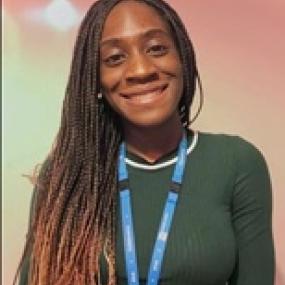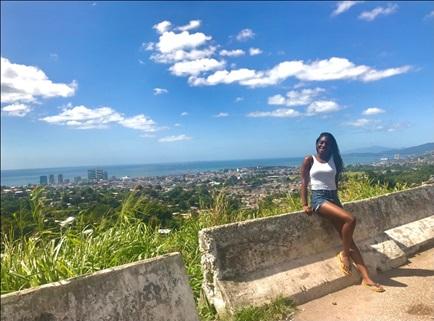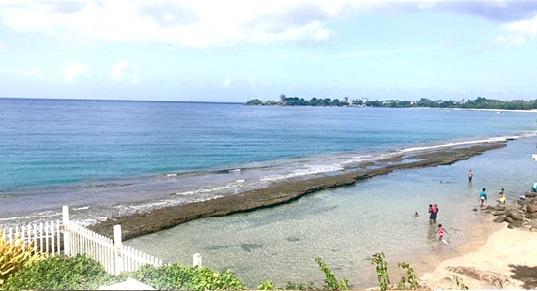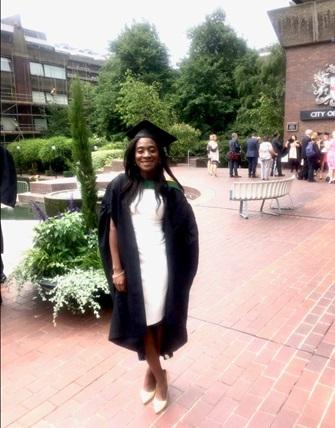FY1 Meets Intensive Care…in a Pandemic

Sarafina is one of the Foundation Year 1 trainees at St. Mary’s Hospital Imperial College Healthcare NHS Trust. When not at work she spends her time discovering new television series and restaurants to visit with family and friends.
"I think I speak for myself and fellow doctors who graduated in 2020, when I say “it was not what we were expecting”! My graduation from St George’s Medical School after six years of studying there consisted of me watching an online ceremony in my living room while the world wrestled with rising coronavirus cases. There I was on 25.06.21 no cap or gown, no celebration with my classmates or tutors but somehow ready to start working as an F1 doctor with the added realisation of having to work in a pandemic and on intensive care for four months.
My background in intensive care consisted of two weeks on an Anaesthetics and ICU (Intensive Care Unit) placement in my final year. This, coupled with 4 months of working as a doctor was the foundation to starting my ICU placement. I was apprehensive but excited to start something new and admittedly a little relieved to be off of the acute medicine rota!
Unsurprisingly, my experience in ICU has allowed me to reflect on the very beginning and why I choose to pursue a medical career. I am originally from a small twin-island in the Caribbean called Trinidad & Tobago, and I have Jamaican roots on my father’s side. Growing up in the West Indies reminds me of family, heat, calypso music, and most importantly delicious food. I would always recommend a visit especially during February for our annual Carnival celebration in Trinidad."

"My parents always gave the impression that there was no limit to what my sisters or I could achieve so it wasn’t a shock when I wanted to be an international sprinter at 9, a broadcast journalist at 11, and eventually a doctor at 15. My family and I relocated to the UK in 2007, and during my final eight years of schooling, I immersed myself in different subjects and hobbies which ultimately resulted in attending medical school, graduating from St George’s University, and ready to start work at St Mary’s Hospital as a foundation doctor."


"Four months of General Medicine was my first rotation as a newly qualified doctor followed swiftly by Intensive Care. Within approximately four weeks of starting my placement in ICU, we were facing the second wave of coronavirus after the nation had only just recovered from the first one. The initial starting period of a new job is often one of adjustment and a steep learning curve; understanding what the usual structure of the day is including morning handover, assessing patients before ward round, and completing afternoon jobs. Just as I started to feel more comfortable with the day- to-day tasks, the second wave of coronavirus hit and multiple changes occurred in a relatively short space of time to accommodate increasing ICU admissions. Staff from different departments, specialties, and hospitals all redeployed to ICU to help ease the pressure on permanent ICU staff.
Working in intensive care during such a challenging period for everyone was a humbling experience. I witnessed world-class surgeons and doctors who are experts in their field volunteer to work as healthcare assistants. It was a pleasure working alongside redeployed staff from various specialities, from radiography to sexual health and vascular surgery. They each brought some of their expertise to ICU and had it not been for this experience I would not have had the opportunity to learn from them. Strangely enough, despite being the most junior doctor on the team, I think they also learned from me. Some of the new SHOs and redeployed juniors had no previous experience in ICU. Having worked there two months before I was able to answer some of their questions, explain the structure of the working day and supervise procedures. I felt like a valuable member of the team and not just a “supernumerary” F1. Intensive care is a great example of how each and everyone’s role is valued and their work appreciated to best help our patients. The nurses, doctors, physiotherapists, dieticians, pharmacists, and all other clinical/non-clinical staff contribute to the unit wholeheartedly.
Intensive care is a diverse, thrilling, and rewarding specialty. Even though I hope to pursue a career in general practice, I am fortunate to have cared for patients in an HDU setting. And who knows I might just change my mind and end up back in ICU. We all know more unpredictable things have happened over the last two years, never say never!"
